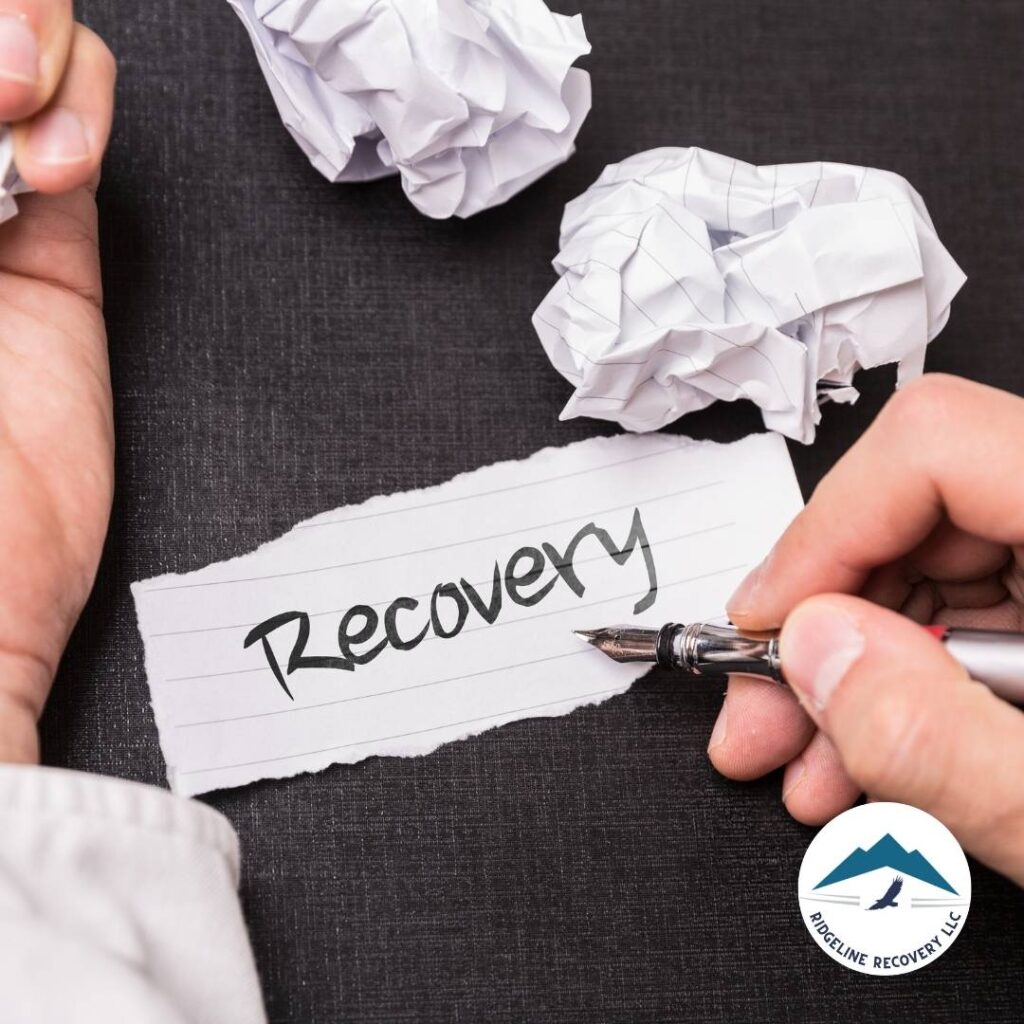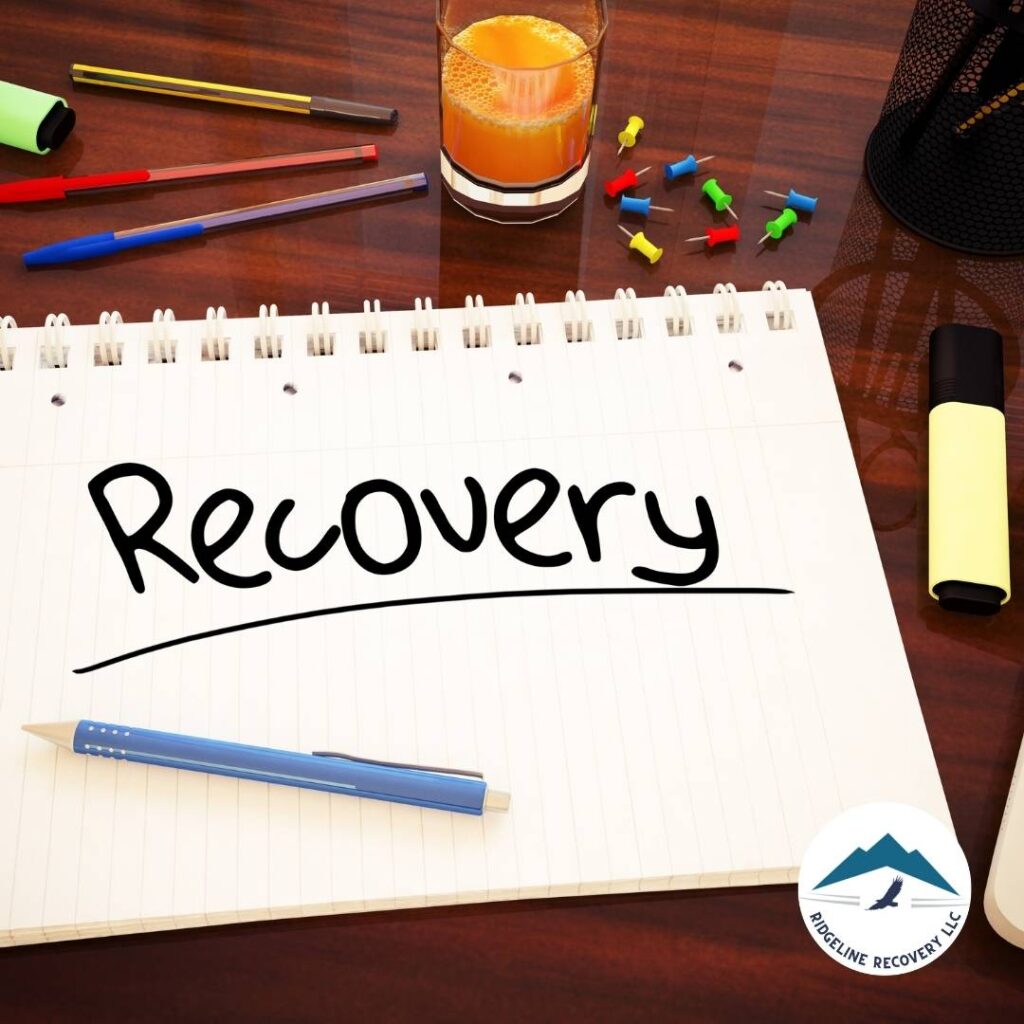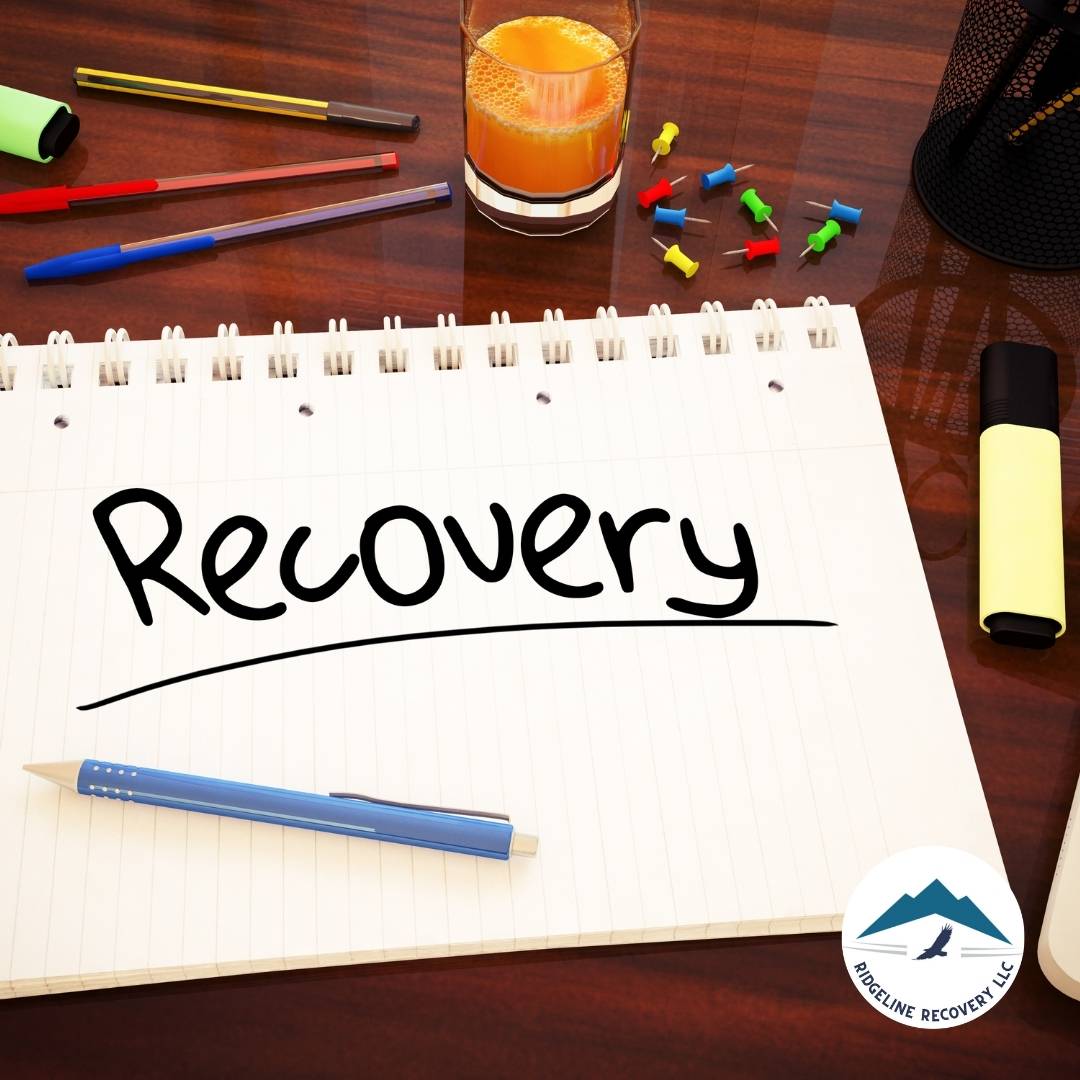Alright, you’re here. You’re considering addiction treatment near me, which means you’re ready to face some hard truths about addiction and recovery. Now, the journey ahead? It’s not easy. But, understanding what you’re signing up for, having realistic expectations, and knowing what to look for in addiction treatment services can set you up for the best chance at success. Whether you’re someone battling addiction or you’re here for a loved one, here are three core things you need to know before you walk into that first appointment.
1. Why It’s Not Just About Stopping Substance Use
Most people think addiction treatment near me means you’ll just “quit using” the substance that’s taken control of your life. But that’s only the surface. Successful addiction recovery is about rebuilding the life that got interrupted. The substance use? That’s just a symptom of deeper issues.
Addiction therapy near me is designed to help people dig deeper. Therapists work with patients to uncover why they started using in the first place, identify the triggers that set off cravings, and find healthier ways to cope with life’s ups and downs. Addiction recovery is a full reprogramming of habits, reactions, and coping mechanisms. You’re basically taking on a complete mental renovation project.
Let’s be honest—just quitting is hard. But just quitting without the support of addiction therapy services? That’s nearly impossible to sustain. The patterns and environments that fueled addiction are often waiting right outside the clinic door, and they can pull someone right back in if they haven’t developed new ways to handle them. Addiction treatment Columbus offers programs designed around whole-life change, helping patients avoid the “pink cloud” that can set in early on when everything feels easy but can crash quickly without the right tools.
2. Treatment Isn’t One-Size-Fits-All—It’s About Finding What Works for You
There’s no one “right” way to approach addiction treatment near me. What works for one person may not work for the next. The options are endless—inpatient programs, outpatient clinics, addiction recovery Columbus, detox centers, and more. Understanding your options means you can pick a program that fits your needs and is close to home for support.
Types of Addiction Treatment Programs
So, let’s break down some of the primary types of addiction therapy services available:
- Inpatient Programs: These programs offer a focused environment away from triggers. You stay on-site for the duration of the program, immersing yourself in a 24/7 supportive environment.
- Outpatient Programs: These are ideal for those who need to balance treatment with life obligations. Outpatient allows you to attend therapy during the day and return home afterward, giving you the chance to apply what you’re learning in real time.
- Detox Programs: If you’re in the early stages and need help with withdrawal symptoms, detox is the place to start. Detox clinics near me provide the medical support needed to manage those initial, intense days of sobriety safely.
- Medication-Assisted Treatment (MAT): Programs that use MAT involve medication to help control cravings and manage withdrawal symptoms. Vivitrol clinics near me or Suboxone programs are good options if cravings are overwhelming. These meds help manage the chemical side of recovery, especially in the early days when temptation is strongest.
- Mental Health Support and Dual Diagnosis Treatment: If you’re dealing with both addiction and mental health issues, find a program that can support both. Mental health services near me with addiction therapy can address both areas, helping you get to the root causes of your addiction.
Finding the right fit is crucial. Addiction treatment isn’t just about finding any program; it’s about finding the addiction recovery near me option that fits your situation. A strong program is built around your needs, not just around ticking boxes.
3. The Need for Accountability and Community
Addiction isn’t something anyone can overcome alone. If it were, people wouldn’t need addiction treatment Columbus Ohio or anywhere else. But accountability and community are key pieces here. Here’s why:
Addiction can make you feel like an island, cut off from everyone. And to a degree, recovery is personal; you have to want it for yourself. But research shows that the more you’re connected to a community or support system, the better your chances of a lasting recovery.
Building Accountability Through Therapy and Support
Most addiction therapy services include group sessions or family therapy. These aren’t just extra services—they’re critical. Group therapy lets you learn from people who are dealing with similar issues. You build bonds with others who know exactly what you’re going through, and that support can make all the difference.
Accountability also often comes from loved ones. Family therapy is designed to heal relationships strained by addiction, helping everyone understand their role in recovery. A family that understands the process and wants to support you through it is a powerful asset. When you go into addiction therapy near me, you aren’t just signing up for counseling—you’re signing up for a team.
The Pros and Cons of Different Types of Addiction Treatment Near Me
When it comes to addiction treatment near me, it’s essential to understand the pros and cons of each program. Addiction recovery isn’t a “one-size-fits-all” solution, and making an informed decision means understanding each option’s strengths and potential drawbacks. Here’s a breakdown:
1. Inpatient Rehab Programs
Pros:
- 24/7 Support: Inpatient treatment is often considered the most intensive and immersive form of addiction therapy near me. You’re in a structured environment with round-the-clock support.
- Minimal Distractions: Being in a residential treatment facility eliminates external triggers. You’re not dealing with the same day-to-day pressures and temptations.
- Peer Support: Inpatient rehab connects you with people on the same journey, which builds a sense of community and accountability.
Cons:
- Time Away from Work or Family: Inpatient programs require a significant time commitment, typically ranging from 30 to 90 days.
- Cost: Inpatient is usually one of the more expensive options in addiction treatment near me, but insurance may cover part or all of the cost.
2. Outpatient Treatment Programs
Pros:
- Flexibility: Outpatient programs offer more flexibility, allowing you to continue working or taking care of family responsibilities while receiving treatment.
- Lower Cost: Outpatient tends to be more affordable than inpatient programs. It’s ideal for people who need support but have daily obligations they can’t step away from.
- Real-World Application: Since you go home after each session, you get to immediately apply what you’re learning in real-life scenarios.
Cons:
- Potential Exposure to Triggers: Being in your regular environment means you’re closer to the triggers that led to addiction in the first place. Without 24/7 support, it can be challenging to avoid these.
- Limited Support Hours: Outpatient programs don’t offer the same level of intensive support as inpatient programs.
3. Medication-Assisted Treatment (MAT)
Pros:
- Effective for Cravings: MAT is particularly helpful for people struggling with powerful cravings or withdrawal symptoms.
- Accessible: Many vivitrol clinics near me offer medication options that can be used on an outpatient basis, so you don’t necessarily have to commit to inpatient care.
Cons:
- Side Effects: Like any medication, MAT drugs can come with side effects, which may require additional medical supervision. Some people may experience side effects of xylazine or other medications commonly used in MAT programs.
- Dependency Risks: Some MAT drugs can be addictive in themselves, which is why they are often administered in a controlled environment.
Key Mental Health Components in Addiction Treatment Near Me
Addiction therapy near me isn’t solely about addressing substance use. It’s deeply intertwined with mental health treatment. Often, addiction stems from underlying mental health issues or trauma, making it essential to address both simultaneously. Here are some mental health services and therapies that often complement addiction recovery near me:

1. Cognitive Behavioral Therapy (CBT)
CBT is a widely used therapy in addiction treatment Columbus because it focuses on identifying and changing the thought patterns that contribute to addiction. In CBT, patients learn to recognize triggers and replace destructive responses with healthier behaviors.
2. Dual Diagnosis Treatment
For people struggling with both addiction and mental health issues, dual diagnosis treatment is crucial. This approach addresses both the mental health disorder and addiction concurrently, providing a more holistic approach. If you’re searching for mental health services near me, it’s important to find facilities that specialize in dual diagnosis treatment.
3. Group and Family Therapy
Family therapy is often a significant part of addiction therapy services. Addiction impacts everyone around the person struggling, and family therapy helps everyone learn new roles and boundaries to support recovery.
Group therapy allows you to share your experiences with others who are facing similar struggles. This community support can be instrumental in feeling less isolated and developing a stronger network of accountability.
Long-Term Recovery and What It Means for Life After Treatment
One of the most common misconceptions about addiction treatment near me is that recovery ends once treatment is over. This couldn’t be further from the truth. Long-term recovery is about consistently applying the tools and strategies learned during treatment to maintain sobriety and rebuild your life. Here are some common components that play a role in ongoing recovery:
1. Sober Living Homes
Sober living homes are an excellent transitional option for people coming out of inpatient or even intensive outpatient programs. These homes offer a structured environment with rules and curfews, providing a buffer between a treatment facility and fully independent living.
2. Regular Therapy Sessions
Even after you’ve finished formal treatment, many addiction therapy services recommend ongoing therapy sessions. This could mean continuing with a mental health therapist near me or attending group sessions. The goal is to keep building on the foundation established during your primary treatment.
3. Support Groups and Alumni Programs
Support groups like Alcoholics Anonymous or Narcotics Anonymous can provide long-term accountability and a sense of belonging. Many treatment centers, like Ridgeline Recovery, offer alumni programs where former patients can return for check-ins or participate in ongoing support meetings.
4. Developing a Personal Recovery Plan
Recovery is about knowing your specific triggers and challenges and creating a personal plan that addresses them. A personal recovery plan might include strategies for managing cravings, a list of trusted people to call when you’re struggling, and routine check-ins with a therapist.
Breaking Down Common Misconceptions about Addiction Treatment Near Me
There are a lot of myths and misconceptions surrounding addiction treatment near me that can keep people from seeking the help they need. Let’s break down some of the most common:
Myth 1: “Addiction Treatment Only Works for People Who Want It.”
Yes, motivation matters, but addiction is a complex issue that affects the brain’s chemistry, and sometimes people need treatment to reach a place where they want to recover.
Myth 2: “Addiction Treatment Is a Quick Fix.”
No form of addiction recovery near me is a quick solution. Whether it’s a 30-day program or longer, recovery is a long-term journey. The initial treatment is just the starting point; long-term recovery requires sustained effort and commitment.
Myth 3: “Only Severe Addictions Require Professional Treatment.”
Even if you feel your addiction is “mild,” professional help can give you the tools to break free and live a healthier life. Addiction affects people in different ways, and getting support sooner rather than later can prevent it from escalating.
Finding the Right Support System
A strong support system is one of the most powerful tools in addiction treatment near me. But where can you start? Here are some ideas:
- Family and Friends: Lean on loved ones who understand the journey you’re on and are willing to support you. Having people around who respect your commitment to recovery can make a huge difference.
- Local Support Groups: Many groups and programs are specific to addiction recovery. Finding an addictions recovery center or joining an Alcoholics Anonymous meeting can help you connect with others on a similar path.
- Online Communities: For those who can’t find local resources, online communities can provide the same accountability and encouragement. These communities often have forums, chat groups, and virtual meetings that are available 24/7.
- Mental Health Clinics Near Me: If you’re dealing with a dual diagnosis, seek out mental health services that provide specialized addiction therapy. Mental health therapists near me often work closely with addiction counselors, creating a more comprehensive approach.
FAQ Section
What’s the Difference Between Detox and Rehab?
Detox is the first step in the recovery process, focusing on getting the substance out of your system. Rehab, on the other hand, addresses the mental, emotional, and behavioral aspects of addiction.
How Long Does Addiction Treatment Take?
It varies. Some people do well with a 30-day rehab near me, while others may need 60, 90 days, or longer. The length of treatment should align with individual needs and severity.
Can I Quit on My Own?
Many people try to quit on their own, but without structured support, relapse rates are higher. Working with professionals in addiction treatment near me provides a safer, more sustainable path to recovery.
How Do I Know If I Need Treatment?
If addiction is affecting your work, relationships, or health, it’s time to consider professional help. Addiction treatment services can provide an assessment to help you decide the best course of action.
Remember, Ridgeline Recovery is here to help every step of the way. Located at 491 Georgesville Rd, Columbus, OH, we offer a comprehensive range of addiction therapy services tailored to meet the needs of individuals and families dealing with addiction. Visit www.ridgelinerecovery.com or call 614-618-5000 to start your journey today
Considering Vivitrol and Medication-Assisted Options in Addiction Treatment Near Me
One essential point to explore before beginning addiction treatment near me is understanding the role of medications in recovery. Medication-Assisted Treatment (MAT) has become a key resource in the field, especially for individuals facing intense cravings or withdrawal symptoms. Medications like Vivitrol, Suboxone, and Methadone are often administered through licensed vivitrol clinics near me to help reduce the intensity of cravings and improve focus on behavioral therapies.
1. How Vivitrol Works in Addiction Recovery
Vivitrol is an extended-release injection used for managing alcohol dependence and preventing relapse in opioid addiction. This non-narcotic medication blocks the effects of opioids on the brain, significantly reducing cravings.
The beauty of Vivitrol is that it’s non-addictive, making it a safe option for long-term use in addiction therapy near me.
2. Pros and Cons of Medication-Assisted Treatment (MAT)
Using medications like Vivitrol can be a game-changer, but they’re not a silver bullet for recovery. Here are some key considerations:
Pros:
- Eases Withdrawal Symptoms: Medications can reduce physical discomfort, especially in the initial stages.
- Improves Treatment Retention: People on MAT are statistically more likely to complete their addiction treatment near me program.
- Reduces Overdose Risk: MAT significantly decreases the likelihood of relapse-related overdoses.
Cons:
- Side Effects: While relatively safe, medications like Vivitrol have side effects, such as nausea and fatigue.
- Requires Commitment: Medications need consistent use; skipping doses or halting abruptly can reduce efficacy.
Choosing the Right Type of Addiction Treatment Program Near Me
Deciding between the different types of programs in addiction treatment near me—whether inpatient, outpatient, or intensive outpatient (IOP)—requires understanding what each offers and how it fits your needs. Here’s a breakdown to guide your choice:
Inpatient vs. Outpatient Treatment: Which Fits You?
Inpatient Addiction Treatment Near Me:
- Benefits: 24/7 access to medical staff and support. Inpatient care creates a fully immersive environment free from external distractions or triggers.
- Drawbacks: It’s more costly and may require a time commitment that’s challenging for those with work or family obligations.
Outpatient and IOP Programs:
- Benefits: Flexibility in scheduling allows you to continue daily responsibilities. These programs are cost-effective and allow for immediate application of new strategies in the real world.
- Drawbacks: Greater exposure to triggers. Lack of a fully immersive environment may lead to occasional lapses in focus.
For those who need a flexible option without compromising support, intensive outpatient programs (IOP) might be a balanced middle ground between inpatient and standard outpatient care. IOP often provides more structure and frequent visits compared to traditional outpatient, enhancing accountability while allowing for flexibility.
The Importance of Family Support in Addiction Treatment Near Me
Family involvement can make or break a recovery journey. Addiction impacts everyone in the person’s life, and a strong support network can be pivotal for long-term success. Addiction therapy near me often includes family therapy as a component to help rebuild relationships, establish boundaries, and foster a supportive home environment.
How Family Can Be an Asset in Recovery
1. Offering Accountability: Family members can act as anchors of support, holding you accountable during challenging times. 2. Creating a Sober Environment: Families can make small lifestyle changes to ensure a sober, supportive environment. 3. Addressing Family Dynamics: Often, family dynamics contribute to substance use. Therapy can help everyone recognize harmful patterns and adopt healthier ways of interacting.
For families looking for resources, many mental health services near me offer family therapy as part of their addiction treatment programs. This therapeutic approach helps each family member gain a better understanding of addiction and its effects.
Addressing Underlying Trauma and Co-Occurring Disorders
In addiction treatment near me, a key aspect is addressing the root causes of addiction. Trauma and co-occurring mental health disorders are often at the core of substance use disorders, and addressing these is fundamental for long-term recovery. Dual diagnosis treatment aims to simultaneously address both addiction and mental health challenges.
Understanding the “Why” Behind Addiction
In many cases, individuals use substances as a way to cope with unresolved trauma or underlying mental health issues like depression and anxiety. By focusing solely on the addiction without addressing these deeper issues, the treatment might fall short. Comprehensive addiction therapy services include therapy options like Cognitive Behavioral Therapy (CBT) and Dialectical Behavioral Therapy (DBT) to confront and manage these challenges.
Key Approaches in Trauma and Co-Occurring Disorder Treatment:
- Trauma-Informed Therapy: These therapies focus on understanding how trauma impacts thoughts and behavior, helping individuals work through painful memories.
- EMDR Therapy: Eye Movement Desensitization and Reprocessing (EMDR) is a unique technique for processing trauma and reducing its impact on daily life.
The Role of Mental Health Professionals in Addiction Treatment Near Me
In your journey through addiction treatment near me, having access to mental health professionals, such as therapists, counselors, and psychologists, is invaluable. Here’s why they’re so essential:
Key Mental Health Professionals and Their Roles
- Addiction Counselors: Trained in handling addiction specifically, these counselors guide you through identifying triggers, managing cravings, and adopting healthier coping strategies.
- Mental Health Therapists: These professionals address the emotional and psychological aspects of addiction, working on issues like depression, anxiety, and trauma that may be fueling addiction.
- Psychologists/Psychiatrists: They provide clinical insight, diagnostics, and may prescribe medication if necessary.
Whether it’s finding a mental health therapist near me or visiting a mental health clinic near me, working with trained professionals makes a huge difference in personalizing a treatment plan that addresses your unique needs.

Financial and Insurance Considerations in Addiction Treatment Near Me
The cost of addiction treatment can be a major hurdle for many people. While there are a wide range of options available, each comes with its own costs. From best drug rehab facilities to affordable outpatient centers, choosing a program that aligns with both your recovery needs and financial situation is essential.
How to Navigate Insurance and Financial Support
- Check Your Insurance: Many insurance plans cover part or all of addiction treatment. For example, Blue Cross Blue Shield of Ohio offers coverage for various levels of addiction therapy.
- Payment Plans and Scholarships: Some addiction recovery Columbus centers offer payment plans or sliding scales, while others may provide scholarships or financial assistance.
- Government-Funded Programs: Some government grants fund rehab programs for those who qualify, providing access to quality treatment regardless of financial constraints.
Avoiding Relapse Triggers and Managing Cravings in Addiction Treatment Near Me
One of the biggest challenges in recovery is managing cravings and avoiding relapse. Addiction rewires the brain, making it difficult to resist cravings even after completing addiction treatment near me. However, there are strategies you can implement to manage these triggers effectively:
Recognizing and Managing Common Triggers
1. People: Social circles play a major role in addiction. Certain friends or environments may encourage substance use, making it essential to distance yourself from these influences.
2. Places: Many people associate specific places with their substance use. Staying away from places that trigger memories of use, like bars or certain social spots, is key to maintaining sobriety.
3. Emotions: Emotions, particularly negative ones like stress, anxiety, or loneliness, often trigger substance use. Learning to manage these through healthy outlets like exercise, therapy, or meditation is vital.
Practical Tips for Managing Cravings:
- Mindfulness Practices: Mindfulness and meditation help reduce stress and increase awareness, making it easier to handle urges.
- Replacement Activities: Engage in activities that promote relaxation and joy, like hiking, art, or volunteering.
For people in addiction recovery near me, understanding their triggers and managing them proactively can make the difference between relapse and long-term sobriety.
Building a Healthy Lifestyle After Addiction Treatment
A successful recovery plan goes beyond avoiding substances—it includes creating a healthy and fulfilling life. A holistic approach to recovery means focusing on physical health, mental well-being, and establishing a support network.
Establishing New, Healthy Habits
1. Exercise: Physical activity releases endorphins, which are natural mood boosters. Exercise also helps manage stress, anxiety, and other emotions. 2. Nutrition: A healthy diet helps stabilize mood, energy levels, and overall well-being. This is especially important for people recovering from alcohol or drugs, as poor nutrition can exacerbate mood swings and other issues. 3. Routine: A routine provides structure, which can be helpful in maintaining focus and avoiding situations that could trigger substance use.
Connecting with the Community
Staying connected to a sober network is essential for lasting recovery. Many treatment centers for alcoholics and addictions recovery center programs offer aftercare services and alumni networks, allowing individuals to stay in touch and maintain accountability.
Frequently Asked Questions (FAQs) Part 2
Q: How much does addiction treatment cost?
A: Costs vary widely depending on the type of treatment and location. 30-day rehab near me might cost more upfront than outpatient treatment but could also provide more intensive support. Many programs accept insurance, and Ridgeline Recovery works with people to help them navigate the financial side.
Q: How do I know if inpatient or outpatient treatment is better for me?
A: Inpatient is generally best for those with severe addiction or a high risk of relapse, while outpatient can be effective for those with a supportive home environment. Addiction treatment near me consultations at places like Ridgeline Recovery can help you figure out the best fit.
Q: Can I continue working while in treatment?
A: Yes, especially in outpatient programs. Some inpatient programs also offer work accommodations. It’s about finding a balance that lets you commit to both your recovery and your responsibilities.
Final Thoughts
Addiction treatment near me isn’t just about stopping substance use; it’s about giving you the tools, support, and community you need to rebuild your life. Finding the right program is critical, and it’s okay to ask questions, explore options, and take time to find what will work best for you.
By committing to treatment and building a support network, you’re setting yourself up for a new chapter that goes beyond addiction—a life that’s fully your own.
Call Us Now!
If you or a loved one is struggling with heroin or alcohol dependency, reach out to Ridgeline Recovery Center in Columbus, Ohio, today. At Ridgeline Recovery, we offer a path to hope and healing. Our comprehensive Addiction Recovery services include Addiction Therapy, Addiction Treatment, Vivitrol Clinic and specialized Mental Health Services designed to support your journey to recovery.
We provide Aftercare Programs and Peer Support to ensure you have ongoing assistance after treatment. Our dedicated team offers Case Management and Child Services for those needing extra support. For individuals who prefer a faith-based approach, we offer Faith-Based Recovery options.
Our programs feature Group and Individual Counseling, along with Medication-Assisted Treatment (MAT) to address your unique needs. We also have an Intensive Outpatient Program (IOP) and a Partial Hospitalization Program (PHP) for more structured care.
Our team includes Registered Nurse Services, Psychiatric Services, and Therapeutic Behavioral Services (TBS) to provide comprehensive support throughout your recovery process. We work with various Insurance Coverage plans to help you access the care you need.
Don’t wait—contact us now to start your journey toward a brighter future with Ridgeline Recovery.
For more stories and information Contact Us, visit our Blog page and Stories & Highlights.







